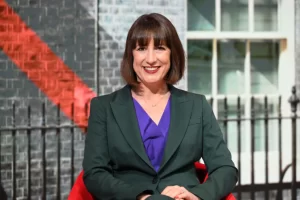Labour intends to enhance the UK’s post-Brexit trade deal with the EU, according to shadow chancellor Rachel Reeves. Her comments mark a significant shift in the party’s approach, which has largely avoided discussing Brexit in detail.
Reeves indicated that Labour would seek a less adversarial relationship with the EU and explore closer alignment with EU regulations in specific sectors, such as chemicals and financial services. She noted that most financial services companies have not viewed Brexit as beneficial for their businesses.
In an interview with the Financial Times, Reeves stated that Labour would aim to reset Britain’s global image, avoiding the regulatory divergence that has characterized recent Conservative policies. She suggested that Labour could negotiate a bespoke arrangement for the chemicals industry to avoid the costs associated with registering products under a separate UK system.
“I don’t think anyone voted leave because they were not happy that chemicals regulations were the same across Europe,” Reeves said, adding that immigration was a primary concern for her constituents who voted to leave.
David Frost, the UK’s former lead Brexit negotiator, criticized Reeves’s approach, arguing that Brexit voters rejected the idea of EU rules being set in Brussels. The EU has previously been wary of the UK attempting to “cherrypick” benefits of EU membership without adhering to full responsibilities.
Reeves also mentioned that Labour would look to improve mutual recognition of professional qualifications, which could benefit the financial services sector, a significant part of the UK economy that was largely excluded from the Brexit deal.
Despite these proposals, Reeves reiterated that Labour would not seek to rejoin the single market or customs union and would not support a youth freedom of movement scheme. The party’s stance aims to work within the existing parameters of the Brexit deal while attempting to make practical improvements.
Reeves also emphasized that a Labour government would prioritize economic growth over tax increases, countering Conservative claims that Labour would raise taxes if elected. She argued that Labour’s economic plans do not require tax hikes on the wealthy but instead focus on fostering growth.
As the general election approaches, Labour’s nuanced approach to the Brexit trade deal signals a shift in tone and a willingness to address specific economic sectors’ concerns while maintaining a broader commitment to respecting the Brexit outcome.
Read more:
Labour Aims to Improve UK-EU Post-Brexit Trade Deal, Says Reeves

